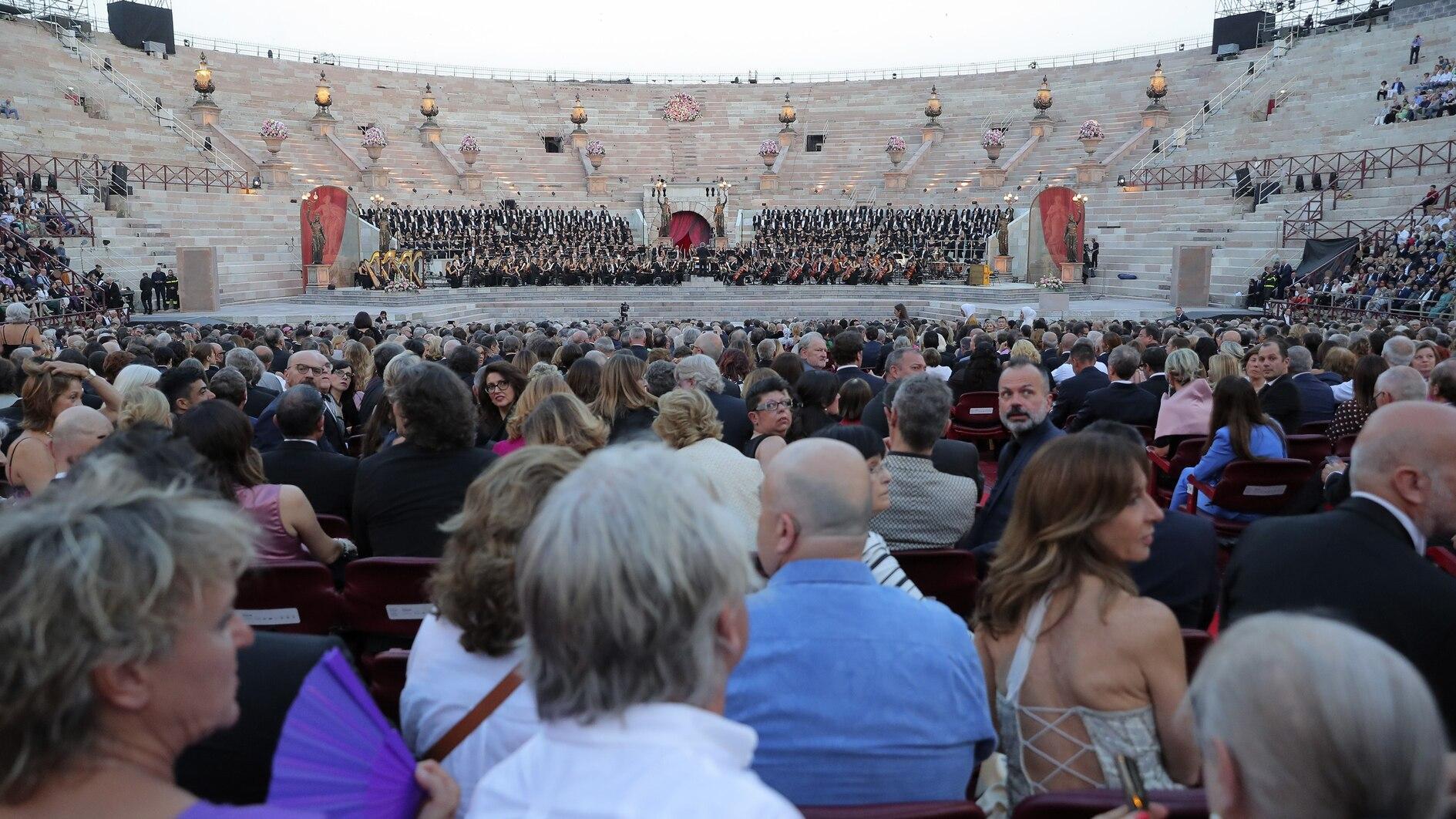
Verona's ancient Roman Arena hosted a star-studded classical concert on June 7 to celebrate the addition of Italian opera singing to UNESCO's list of intangible global heritage.
Some of the world's finest singers performed arias, including German tenor Jonas Kaufmann, French baritone Ludovic Tezier, Italian soprano Eleonora Buratto, and her compatriots Luca Salsi and Francesco Meli. The Russian diva Anna Netrebko had to cancel her performance at the last minute for health reasons.
A total of 13,500 people attended the concert at the Arena, the largest open-air theater in the world.
Italian opera was added to the U.N.'s heritage list in December. The citation acknowledged it as an art associated with specific facial expressions and body gestures involving a combination of music, drama, acting and staging.
"Italian opera is our common ancestor," Tezier told AFP before the concert. "Opera is an Italian invention which has spread all over the world."
Conductor Riccardo Muti directed 160 orchestra musicians, and more than 300 choristers from prestigious Italian institutes such as La Scala in Milan and La Fenice in Venice opened the event by interpreting pieces from the greatest Italian composers of the 19th century.
Of the works performed Friday evening, the famed ode to freedom "Va, pensiero," also known as "The Chorus of the Hebrew Slaves," visibly moved the audience.
Addressing the crowd at the end of his concert, Muti paid tribute to the members of the orchestra, saying they had "surpassed themselves," especially in light of their large number, which complicates coordination.
The second part of the evening was reserved for arias performed by internationally renowned soloists, including Australian soprano Jessica Pratt, whose masterful rendition of "Casta Diva", from Bellini's "Norma," made the amphitheater vibrate.
'Like a gladiator'
Verona's Arena offered the ideal setting, Tezier told AFP: its atmosphere "is warm, conducive to opera. We experience truly magical moments.
"When you enter the arena, with this huge audience in front of you, you have a feeling of humility, you have the impression of being very small.
"But at the same time you feel like a gladiator going into battle because there is an exceptional energy that emanates from this place."
The Arena in the northeastern Italian city was built in the first century AD to entertain Romans with gladiator fights, spectacular shows featuring wild beasts, and even naval battles.
Friday's concert kicked off the 101st edition of the Verona Arena Opera Festival, which runs to September 7 and is expected to draw more than 500,000 music lovers.
The festival was created on August 10, 1913 by the Veronese tenor Giovanni Zenatello. He showed off the stone amphitheater's remarkable acoustics when he performed Verdi's Aida there.
Opera came into being around 1600 in Florence, with the founding of an academy promoting an innovative combination of sung text and music.
The first great composer of opera is considered to be Italy's Claudio Monteverdi, who lived from 1567 to 1643.